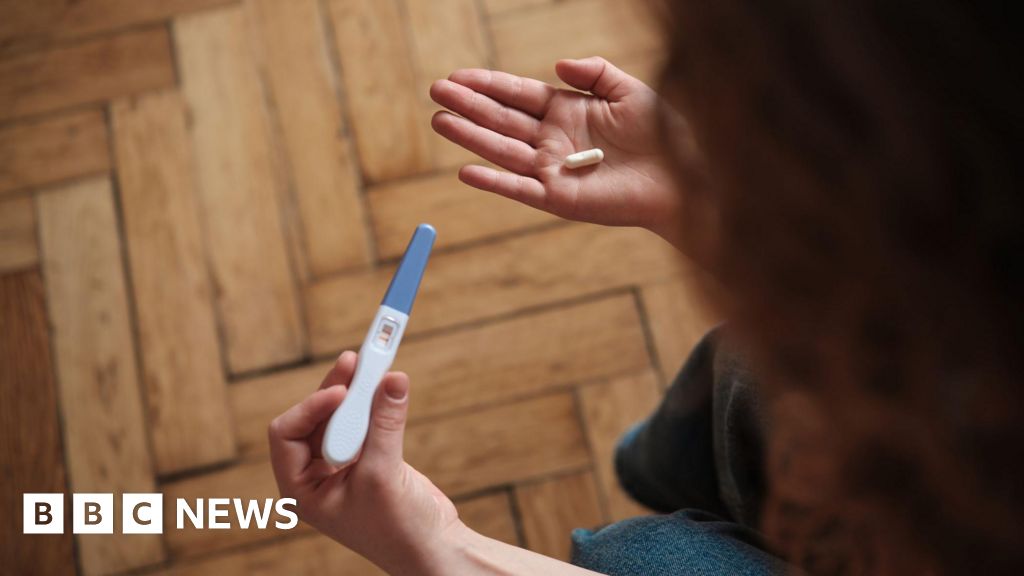We tend to think of veterinarians as the people who treat our pets' aches and illnesses. Behind those exam room doors; however, there's a bigger story unfolding that connects your pet's health to your own.
In celebration of Veterinary Appreciation Day, we're spotlighting the extraordinary impact of veterinary professionals beyond the exam room. We spoke with Dr. Molly McAllister, global chief medical officer at Mars Veterinary Health, to talk about how everyday veterinary visits are helping spot public health risks early, protect communities, and shape the future of medicine.
Q: Most people think of veterinarians as animal doctors. When did you realize veterinary medicine had far broader implications beyond just pet health?
Like most veterinarians, my journey started with a lifelong love of animals. Veterinary school is where I began to see the scale of health information flowing through clinics. As I went on to obtain a Master's degree in public health, the overlap of human health and animal health became central to my studies. At Mars Veterinary Health, nearly 70,000 pet-loving veterinary professionals touch the lives of millions of pets and their owners around the world each year. This gives us access to deep knowledge and insights that can drive meaningful global impact. Veterinary care isn't solely about animals; it comes with a responsibility to public health, too.
That's why we prioritize the concept of One Health: The inextricable link between people, animals, and the environment.
Q: Why are pets such powerful early indicators of public health trends?
Companion animals share more than a loving relationship with us, they also breathe the same air, walk on the same sidewalks, and are exposed to many of the same health risks. In fact, they're often the first to show signs of emerging public health issues.
For example, a collaborative study by VCA Animal Hospitals and Antech that examined over 1,000 pets living with people who had COVID-19 showed the interconnection between human and animal health. Our researchers found that 33% of dogs and 27% of cats tested positive for SARS-CoV-2 antibodies. While this is not the same as developing disease, this result demonstrates how pet health monitoring can reveal important risks to human health. Real-world links like these demonstrate the veterinary profession's critical role in maintaining and promoting One Health.
Our recent Mars Veterinary Health Science Impact Report shows the value of veterinary data in identifying public health risks. It brings together research from our global veterinary care network and offers insights from millions of pets. From this, we can spot trends sooner to keep improving global health at scale.
Q: What kinds of research is Mars Veterinary Health contributing to right now?
As a family-owned, purpose-led company, we've long encouraged and invested in veterinary science and clinical research across our global network. This allows us to enhance the quality of care we deliver and help advance veterinary medicine industry-wide. With millions of pets coming through our doors, we feel a responsibility and opportunity to use our knowledge and insights for greater good.
Clinician scientists across Mars Veterinary Health are continually conducting and publishing leading clinical research — many the first and largest studies of their kind. Last year alone, this amounted to more than 450 peer-reviewed publications from our Associates worldwide. Across 140+ of our clinics in the US and Europe, we're also running clinical studies that will help shape the future of veterinary care.
Our Mars Veterinary Health teams also enable the Mars Petcare Biobank, one of the largest, most comprehensive real-world pet health studies that aims to follow 20,000 dogs and cats over a decade to detect potential early signs of disease and identify new ways to prevent and predict illness. This study has the potential to transform pet health for generations to come, and pet owners across the US are invited to sign up here.
Q: Where do pet owners fit into all of this? How can they make a difference?
Every pet healthcare decision starts with trust between a pet owner and their veterinarian, a partnership that should grow through every stage of a pet's life.
This recently played out at some of our Linnaeus clinics promoting responsible antibiotic usage. We shared a video in 20+ languages to help pet owners better understand antimicrobial resistance and responsible antibiotic use. Our veterinary teams noticed more thoughtful conversations and fewer requests for unnecessary prescriptions as a result. This is just one example of the important partnership between veterinary teams and pet owners to protect the health of pets, people, and the planet.
Q: What's preventing deeper understanding of veterinary medicine's role in public health?
Awareness is growing, but we still have work to do. Veterinarians deeply understand the human-animal bond and their role in safeguarding it and therefore have always played a role in public health, from food safety to spotting disease trends and supporting community wellbeing. The opportunity now is to strengthen the public's understanding of how pet healthcare contributes to public health. Greater awareness has the potential to strengthen our ability to drive lasting, positive change.
Q: What's your vision for the future of the veterinary profession?
My 8-year-old daughter wants to be a veterinarian. Thinking of her future and others like her keeps me focused on building a profession that inspires and cares for the next generation. For me, the goal is better care for pets everywhere, powered by a connected, global veterinary community. That means supporting the people behind the care through training, education, and research. As a leading post-graduate education provider, I'm proud that Mars Veterinary Health helps grow the next generation of clinician-scientists — giving them the tools to shape what's next.
Q: If there's one takeaway you want readers to leave with, what is it?
I want people to see their veterinarians as more than someone who treats a cough or a limp. They're partners in your pet's care at every stage and a key health professional in their network. Veterinary teams are knowledgeable, pet-obsessed allies who aim to do what's best for your pet and you. In doing so, they're helping protect public health in your community. The next major medical breakthrough might not come from a research lab but from your local veterinary clinic.
This post was created by Mars Veterinary Health with Insider Studios.








 English (US) ·
English (US) ·